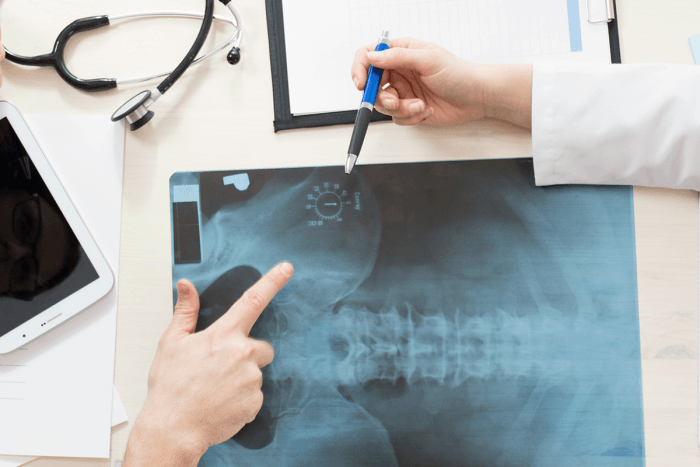
-
Prior to the day of surgery, continue all of your routine medications, with the exception of anticoagulation medications. If you are taking COUMADIN, you must stop it 5 days prior to the day of your procedure. If you are taking PLAVIX, you must stop it 7 days prior to the day of your procedure.
-
On the morning of your surgery, take all of the routine medications, except any anticoagulants, with a sip of water. If you are diabetic, take only half of your normal insulin dose, since you will not be eating or drinking.
-
After taking your routine medications early on the morning of surgery, please do not eat or drink anything before your procedure. That includes coffee, orange juice, soda, tea, or anything else. If food or drink is ingested before general anesthesia, it can remain in your stomach and cause serious complications, including death. You should have nothing to eat or drink after midnight the night before your surgery. If you have any questions, please contact the facility where your surgery will be performed.
-
Please arrive at the surgical facility at your appointed arrival time. Doing this insures that the staff has ample time to prepare you for your procedure and answer any last minute questions. Yes, you will see me prior to your procedure and I will ask you what procedure we are performing and which side is the correct side. This is a routine step in the preoperative procedure that insures your safety, which is always our ultimate priority.
-
As always, if you have any questions or concerns prior to your surgical procedure, please contact us without hesitation.
-
2 weeks prior to surgery, you should start drinking a yogurt drink with probiotics. We recommend either Activia or DanActive once a day. The rationale for this is to try to stabilize the bacteria in your intestine and minimize the possibility of a complication called clostridium difficile. This is not a common complication of total joint surgery, but it can occur in a small number of patients.
-
1 week prior to surgery and 1 week after you are discharged; I would also recommend that you start drinking a nutritional supplement which is especially formulated for surgical patients. We recommend either Boost or Ensure once a day. It contains essential amino acids that help build up protein your body will need after surgery.
-
Please shower with an antimicrobial soap starting 1 week prior to your surgery. Even though the hospital recommends using this type of soap only one day before the surgery, it is my recommendation that you use it for 7 days prior to your surgery. The reason for this is that there is documented evidence to suggest that there is a higher rate of effectiveness the longer you use this soap. We recommend Hibiclens, which can be purchased at CVS or Walgreens.
-
It is extremely important that you stop drinking alcohol 2 weeks prior to surgery. Alcohol affects your body’s ability to fight infection and stop bleeding. Interference with either one of these functions can lead to serious complications after surgery.
-
It is extremely important that you stop all over-the-counter anti-inflammatory medications, at least 3 weeks prior to surgery. This includes aspirin. Tylenol, Mobic, and Celebrex are the only anti-inflammatory medications that are safe to take right up to and even through surgery.
-
It is extremely important that you stop taking all herbal and dietary supplements at least 2 weeks prior to surgery. Most of these preparations are not regulated by the FDA, and therefore may have impurities in them, which can cause abnormal reactions to anesthesia, and other medications that you may be given during your hospitalization. Fish oil contains a potent blood thinner and should be stopped 3 weeks prior to surgery.
-
It is okay to continue taking a daily vitamin up to the time of surgery as long as it does not contain vitamin E. Vitamin E is a blood thinner, which can cause increased bleeding after surgery. Vitamin C itself is recommended at a dose of 1000 mg daily.
-
Please inform me if you are taking any medications called “Selective Serotonin Reuptake Inhibitors” such as:
Celexa / Citalopram
Effexor / Venlafaxine
Pristiq / Desvenlafaxine
Savella / Milnacipran
Prozac / Fluoxetine
Lexapro / Escitalopram
Luvox / Fluvoxamine
Paxil / Paroxetine
Zoloft / Sertraline
These medications can cause serious bleeding if taken in conjunction with anti-inflammatory medications. They cannot be stopped abruptly, or you will suffer from withdrawal symptoms. You must contact your primary care physician in order to stop these medications properly.
-
It is extremely important that any patients, who are going to undergo joint replacement surgery, see their dentist at least 3 weeks prior to surgery, so that you can be cleared of any possible cavities or abscesses that could potentially infect your joint replacement.
-
If you follow all of my recommendations listed above, we will have done everything possible to prepare you for your surgery and prevent complications. These are simple things that anyone can do and comply with, and will positively impact the outcome of your surgery. As always, if you have any questions or concerns, please do not hesitate to call my office at (386) 775-2012.

